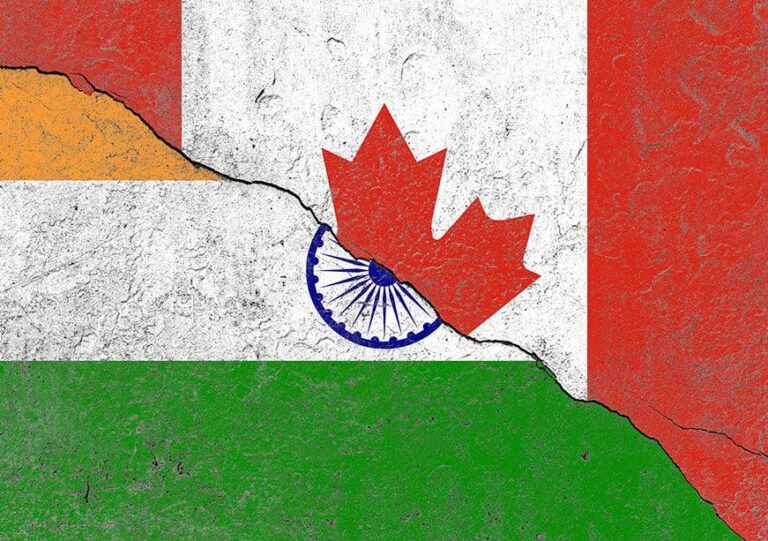India and Canada are taking significant steps to repair diplomatic relations strained by the killing of a prominent Sikh activist on Canadian soil. The incident, which sparked a wave of political tension and public outcry, has cast a shadow over bilateral ties traditionally marked by cooperation and shared democratic values. As both governments seek to navigate the complex aftermath, efforts are underway to address security concerns, justice demands, and the broader ramifications for their sizeable Sikh communities. This article explores the evolving dynamics between India and Canada as they work toward restoring trust and stability in their relationship.
India and Canada Seek Diplomatic Solutions to Restore Bilateral Trust
In the aftermath of a contentious period marked by the killing of Sikh activists tied to separatist movements, both India and Canada have signaled a renewed commitment to addressing diplomatic strains through dialogue and cooperation. Officials from New Delhi and Ottawa are actively engaging in discussions aimed at rebuilding trust, emphasizing the importance of respecting sovereignty while ensuring the safety and rights of all diaspora communities. At the core of these talks lies a mutual desire to prevent extremist elements from undermining the historically strong ties between the two nations.
Key steps outlined by both governments include:
- Establishing a joint task force to monitor and counter extremist activity
- Enhancing intelligence sharing and law enforcement collaboration
- Promoting cultural and economic exchanges to reinforce people-to-people connections
- Agreeing on transparent communication channels to quickly resolve incidents that might inflame tensions
| Priority Area | Actions Planned | Expected Outcome |
|---|---|---|
| Security Cooperation | Joint intelligence operations | Reduced extremism |
| Diplomatic Dialogue | Regular bilateral meetings | Improved mutual understanding |
| Cultural Engagement | Exchange programs | Stronger community bonds |
Analyzing the Impact of Sikh Activists’ Killing on Indo-Canadian Relations
The deaths of prominent Sikh activists have sparked a profound diplomatic uproar between India and Canada, exposing long-standing fissures rooted in cultural and political complexities. The incident intensified mutual distrust, with accusations flying over espionage and interference in domestic affairs. Public sentiment in both countries was deeply affected, leading to protests and a call for justice from Sikh communities worldwide. These events strained official channels of communication, compelling both governments to adopt cautious and strategic approaches in their subsequent dialogues.
Key repercussions on bilateral relations include:
- Suspension of certain intelligence-sharing agreements due to heightened suspicion
- Increased scrutiny over visa processes and diplomatic exchanges
- Rise in community-led advocacy influencing foreign policy directions
- Temporary halt in joint economic ventures affected by political uncertainty
| Aspect | Effect |
|---|---|
| Diplomatic Trust | Significantly undermined, requiring careful rebuilding |
| Community Relations | Heightened activism and calls for transparency |
| Trade Partnerships | Temporarily stalled amid political tensions |
| Media Coverage | Increased scrutiny amplifying public pressure |
Policy Recommendations for Strengthening Security and Community Engagement
To restore confidence and ensure lasting security, both India and Canada must prioritize transparent communication channels between their intelligence agencies. Implementing regular bilateral security briefings can help preempt misunderstandings and enable timely responses to emerging threats. Additionally, fostering community policing initiatives in regions with significant Sikh populations will encourage cooperation and trust, reducing the potential for radicalization. These efforts should be coupled with investment in cultural exchange programs aimed at dispelling stereotypes and promoting mutual respect.
Key policy actions include:
- Creating joint task forces focusing on counter-terrorism and community liaison
- Supporting grassroots engagement through funding multicultural outreach events
- Enhancing protection for activists and community leaders at risk
- Developing comprehensive education campaigns addressing the roots of extremism
| Policy Area | Expected Outcome |
|---|---|
| Bilateral Intelligence Sharing | Faster threat identification and response |
| Community Engagement Programs | Improved trust and reduced alienation |
| Protection of Activists | Enhanced safety and open dialogue |
In Retrospect
As India and Canada take deliberate steps to repair their diplomatic relationship following the tensions sparked by the killing of Sikh activists, both nations underscore the importance of dialogue and cooperation in addressing shared challenges. While hurdles remain, these efforts signal a mutual commitment to restoring trust and strengthening ties, reflecting the nuanced complexities of international relations in an increasingly interconnected world. The coming months will be critical in determining whether these initiatives can pave the way for a lasting rapprochement between the two countries.




